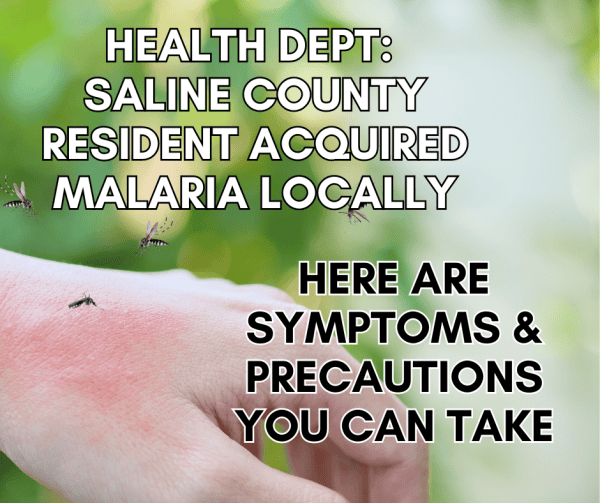A Saline County resident has acquired malaria, according to the Arkansas Department of Health (ADH). In a statement, the ADH said this case was acquired locally, that the person has not traveled out of the country. Malaria is transmitted via infected Anopheles mosquitoes. It is not transmitted from person to person.
READ MORE BELOW?
See the full list of events at www.mysaline.com/events, or browse the thumbnails below!
This is the only locally acquired case of malaria that the ADH knows about in Arkansas. In the United States, there were multiple other cases of locally acquired malaria this year. Seven cases were identified in Florida. There was one in Texas, and one in Maryland. So far this year, five additional cases have been reported in Arkansas, but all were acquired outside of the U.S.
The ADH states that it is important to seek treatment if you begin to exhibit the following 7 symptoms, which start up to 30 days after infection:
- fever
- shaking chills
- sweating
- headache
- body aches
- nausea
- vomiting
Without treatment, malaria can cause disorientation, seizures, anemia, acute respiratory distress syndrome, kidney damage and even death.
READ MORE BELOW?
See the full list of events at www.mysaline.com/events, or browse the thumbnails below!
Avoid being bitten by mosquitoes by using insect repellant, avoiding areas with high mosquito populations, and wearing long pants and long-sleeved shirts when possible. Use EPA- registered insect repellants, such as DEET, picaridin, and others. It is also recommended to dump any standing water around your home. Mosquitoes can reproduce in as little as a bottlecap full of water.
If you are traveling internationally to an area where malaria occurs, talk to your healthcare provider about medicines to prevent you from getting malaria For more information about malaria, please visit: CDC- Parasites – Malaria.





